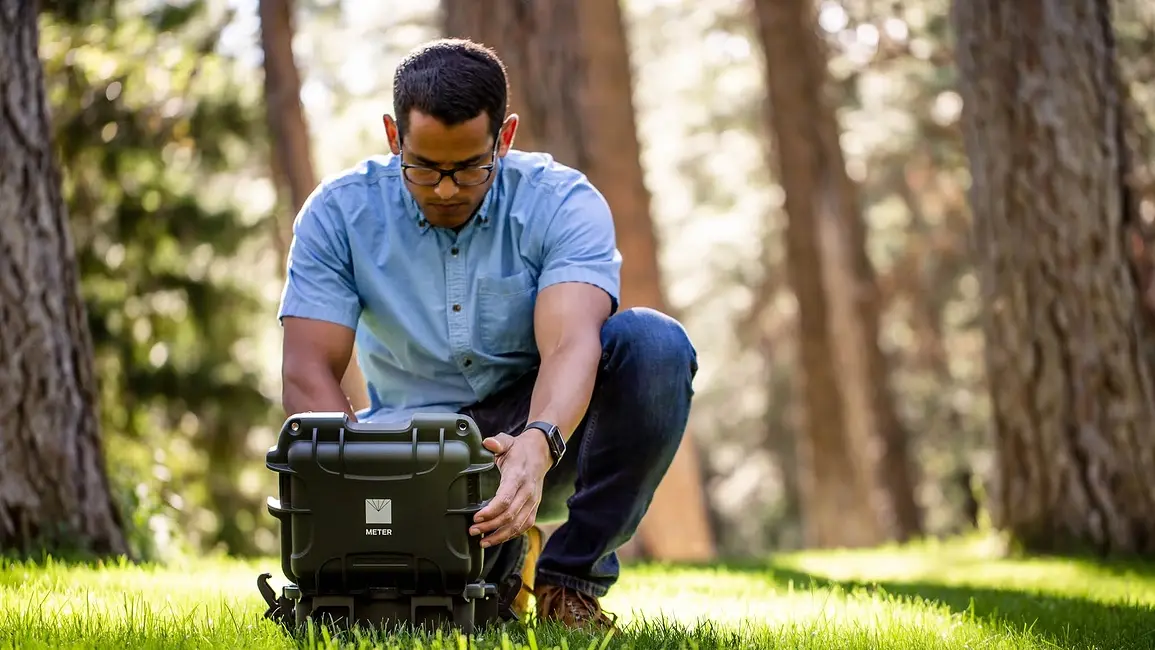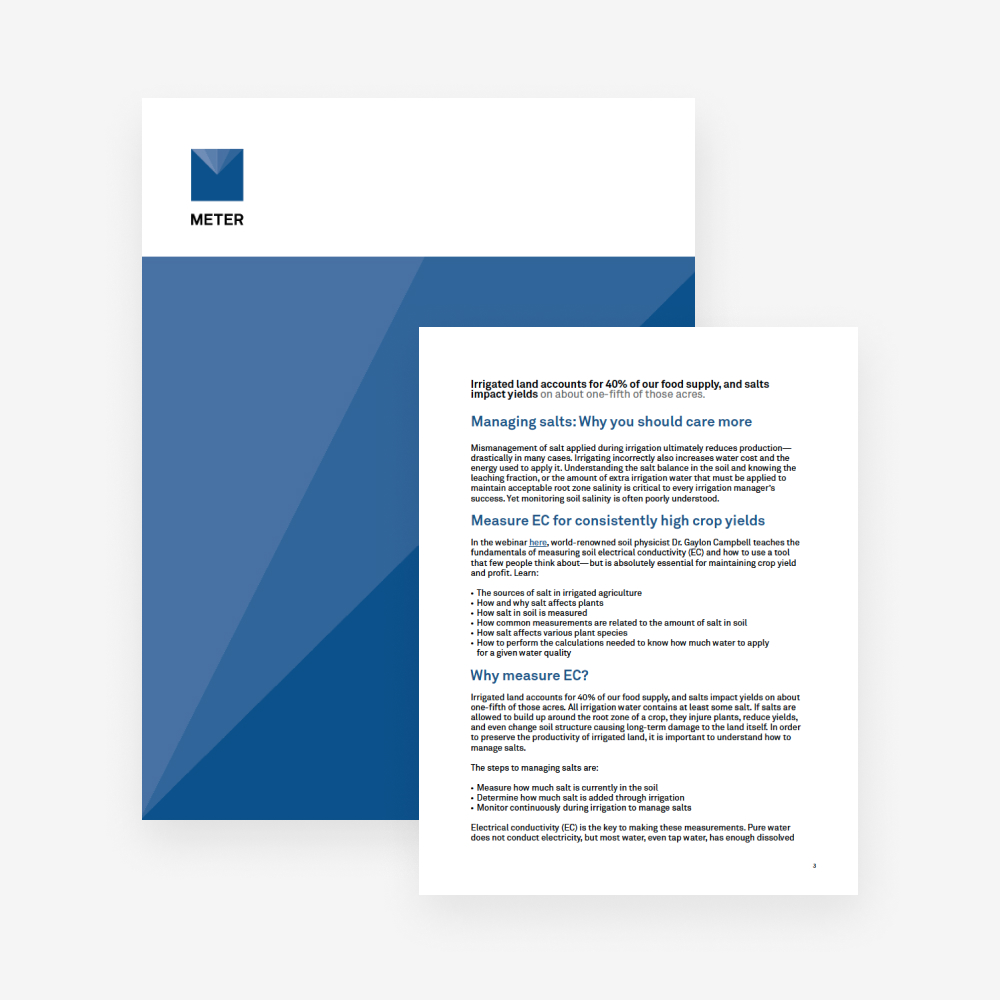Field saturated hydraulic conductivity—Why is it so difficult?
Inaccurate saturated hydraulic conductivity (Kfs) measurements are common due to errors in soil-specific alpha estimation and inadequate three-dimensional flow buffering.

Inaccurate saturated hydraulic conductivity (Kfs) measurements are common due to errors in soil-specific alpha estimation and inadequate three-dimensional flow buffering.
Lab and field instruments used together can provide researchers a symphony of information and can be used as powerful tools in understanding data and predicting a soil’s behavior over time.

– Niall McCartin, Ecohydrology researcher, California
Lab-produced soil water retention curves can be paired with information from in situ moisture release curves for deeper insight into real-world variability.
Researchers are changing the way infiltration measurements are captured while keeping the standards of measurement high.
Leo Rivera, research scientist at METER, teaches which situations require saturated or unsaturated hydraulic conductivity and the pros and cons of common methods.
METER is trusted by





Receive the latest content on a regular basis.